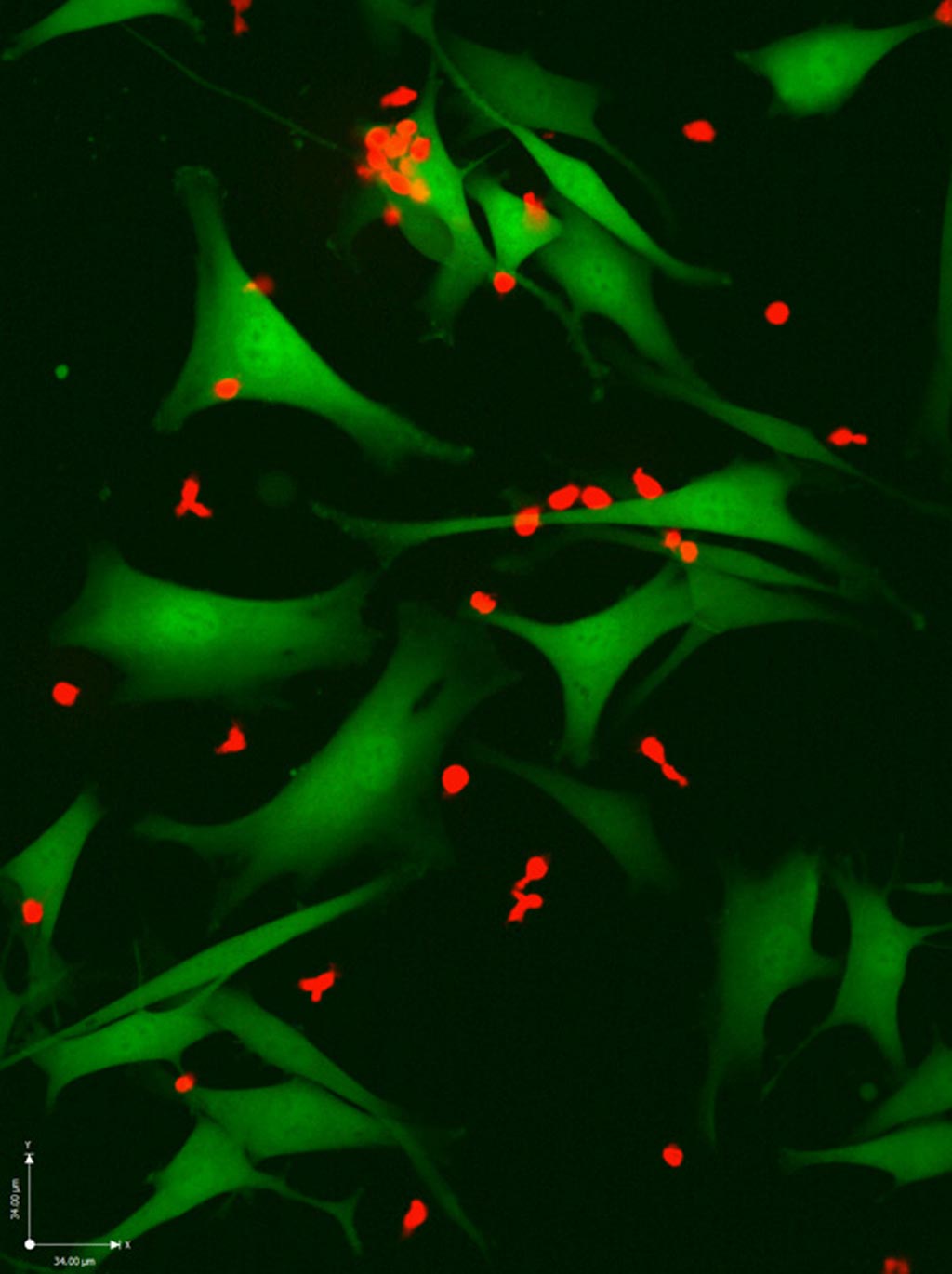Novel Approach Brings Personalized Melanoma Treatment Closer to Reality
By LabMedica International staff writers
Posted on 27 Sep 2018
A team of melanoma researchers used a novel "HLA peptidomics" method to identify and isolate cancer-specific neo-antigens, which could be used to train immune system cells for targeting and destruction of the tumor.Posted on 27 Sep 2018
The quest for tumor-associated-antigens (TAAs) and neo-antigens is a major focus of cancer immunotherapy. Neo-antigens are those that are entirely absent from the normal human genome. They are of relevance to tumor control, as the quality of the T-cell pool that is available for these antigens is not affected by central T-cell tolerance.

Image: T-cells (red) attacking melanoma cells (green). The neo-antigen-specific T- cells in this image are especially effective at killing cancer cells (Photo courtesy of the Weizmann Institute of Science).
In a paper published in the September 12, 2018, online edition of the journal Cancer Discovery, investigators at the Weizmann Institute of Science (Rehovot, Israel), Technion - Israel Institute of Technology (Haifa), and their collaborators combined a neo-antigen prediction-pipeline and human-leukocyte-antigen (HLA)-peptidomics to identify TAAs and neo-antigens in 16 tumors derived from seven melanoma patients, and characterize their interactions with their tumor-infiltrating lymphocytes (TILs).
The investigators used the peptidomics method to bypass previously described algorithmic methods. Instead, they employed a method that removed the peptides from the melanoma cells' HLA complex and investigated the interactions of these antigens with T-cells.
This methodology facilitated the discovery of remarkable antigenic and TIL similarities between metastases from the same patient. Furthermore, the investigators found that two neo-antigen-specific clonotypes killed 90% of autologous melanoma cells - both in vitro and in vivo - showing that a limited set of neo-antigen-specific T-cells may play a central role in melanoma tumor rejection.
First author Dr. Yardena Samuels, associate professor of molecular cell biology at the Weizmann Institute of Science, said, "We discovered that tumors present many fewer neo-antigens than we expected. Our neo-antigen and corresponding T-cell-identification strategies were so robust; our neo-antigen-specific T-cells killed 90% of their target melanoma cells both on plates and in mice. This suggests possible clinical applications for the near future. Some of the peptides we identified are neo-antigens that had not even shown up in the algorithm studies; in other words, the method we used, called HLA peptidomics, is really complementary to these methods."
Dr. Samuels said that, "Although this research is experimental right now, the findings are highly relevant to clinical research, as groups around the world have already worked out the basics of developing therapeutic anti-cancer treatments based on neo-antigens. As almost all the neo-antigens detected in patients thus far are individual -and unique to the particular cancerous tissue - they constitute an ideal class of anti-cancer targets. This would be the ultimate "personalized" cancer therapy - a new drug is created for every patient."
Related Links:
Weizmann Institute of Science
Technion - Israel Institute of Technology













